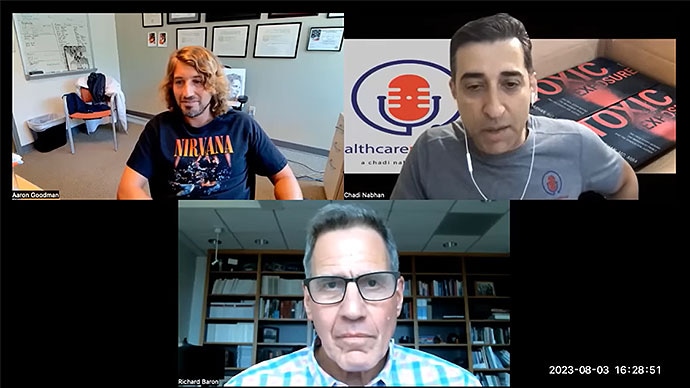It's no secret that many physicians question the value of Maintenance of Certification (MOC) requirements and are concerned about the amount of time, effort, and money the process takes. Now, they and at least two cardiology societies are starting to speak up.
MOC is an initiative from the American Board of Internal Medicine (ABIM) that requires an initial certification that costs thousands of dollars and must be repeated every 10 years. Annual MOC requirements involve tests that cost $220 for the first certificate a physician holds and about $120 for each subsequent one.
Interventional cardiologists (ICs) and other subspecialists have additional fees and requirements.
MOC 'Burdensome,' 'Costly,' 'Complex'
On July 21, hematologist-oncologist Aaron Goodman, MD, an associate professor at the University of California, San Diego, posted a petition on behalf of ABIM diplomates. It calls on ABIM to eliminate the MOC requirement because it is "burdensome," "costly," and "complex and time-consuming."
As of August 22, the petition had garnered more than 18,000 signatures.
Goodman recently debated ABIM President and Chief Executive Officer Richard J. Baron, MD, in a Healthcare Unfiltered podcast. Before the debate, host Chadi Nabhan, MD, MBA, tweeted that he could not find a single physician who would defend the MOC and recertification.

The debate touched on topics such as fees, evidence of value, the certification test format, and the cost and requirements to maintain more than one board certification. Overall, Goodman made the analogy to giving a patient chemotherapy: Because there are harms, he better know that there are also benefits. He cited that the harms associated with MOC include "financial toxicity, time toxicity, and stress toxicity," with the latter being particularly toxic to him personally.
Though the podcast gave both participants ample opportunities to express their views, it's not clear that either participant persuaded the other.
Cardiologists who are unhappy with MOC are speaking up on X (formerly Twitter). IC Matthew Sample, MD, listed five things he's done to improve his practice since IC graduation, for which he received no MOC points.
In response, internist Artem Minalyan, MD, asked, "Hypothetically, if Dr Baron required an IC procedure, I wonder if he would request you to get all your MOC points prior to consenting."
SCAI and HRS Weigh In
Some professional societies have responded to the ABIM's threat to revoke the certifications of cardiologists who don't participate in periodic MOC activities.
The Society for Cardiovascular Angiography & Interventions (SCAI) published its "Position on ABIM Revocation of Certification for Not Participating in MOC." In it, SCAI states that ABIM diplomates who pass their exams and report procedural volumes as required should be "indisputably" recognized as "certified" for the relevant time frame (eg, 10 years), regardless of whether they participate in any other MOC activities.
SCAI President George D. Dangas, MD, PhD, told theheart.org | Medscape Cardiology that "Many of our members have expressed their frustration surrounding the confusion regarding their MOC requirements, including myself. We felt that this confusion could endanger the certified status of members, which would inevitably impact patient care, which is our greatest concern."

The society has received an "overwhelmingly positive response" to its statement, he said. "Our hope is that ABIM will consider simpler, transparent regulations that are reflective of the feedback received from their constituents."
In response to the COVID-19 pandemic, ABIM extended the deadline for diplomates whose certificate expired in 2020 or 2021 until the end of 2022; Dangas suggests that ABIM further extend the deadline to enroll in or renew your MOC to the end of 2024 and that ABIM should "develop a recertification program that can be explained in a single slide/page."
Other subspecialty groups are following SCAI's lead including the EP Advocacy Foundation, and the Heart Rhythm Society (HRS).
MOC Alternatives
The ABIM touts the value of MOC on its website, stating: "There is compelling evidence showing that MOC improves value of care without sacrificing quality and that board certified physicians command higher salaries."
Alternative options that are arguably less arduous are available.
In collaboration with ABIM, the American College of Cardiology (ACC) launched the ABIM/ACC Collaborative Maintenance Pathway (CMP) in 2019 as an alternative MOC assessment option.
The CMP "focuses on one or a small group of topics within cardiology each year, incorporating learning activities as well as a pre-/post-formative knowledge assessment," Janice Sibley, ACC's executive vice president of Education and Publishing told theheart.org | Medscape Cardiology. The program continues to evolve, she said.
In 2022, she noted that the ACC increased the flexibility of the CMP by removing the 7-hour learning engagement requirement, allowing users to choose how much time to spend learning in the CMP program. They also extended the performance assessment windows from 7 to 9 days each, covering 2 weekends for each.
She said that to date, more than "6400 learners" are enrolled in the CMP program.
Though the collaboration seems to make MOC less onerous, some cardiologists think it makes the ACC "complicit."
A certification program that is independent of the ABIM launched in 2015. The National Board of Physicians and Surgeons (NBPAS) is a nonprofit organization led by an advisory board of unpaid physicians (including Medscape's editor-in-chief, Eric Topol, MD). NBPAS seems to be gaining momentum and acceptance.
Cardiologist Melissa Walton-Shirley, MD, recounted her recertification experience with the NBPAS late last year. She now maintains a "hybrid" certification with both ABIM and NBPAS. Though she wants to support the latter, she found that the alternative certification option still requires an initial ABIM certification and is not recognized in all states or by many insurers and hospitals.
Will MOC ever disappear? Sibley said that the ACC is always looking to improve and enhance their offerings. "It is time to lead a change in the conversation from certification to continuous competency, from punitive to supportive options, from random knowledge testing to focused assessing knowledge gaps and lifelong learning. This will require innovation, technology, and new ways of thinking that offer cardiologists flexibility, relevance, and value and ultimately benefit the patients they serve."
Many physicians, including cardiologists, are hoping that the Goodman petition and further pressure from professional societies may finally translate into action.
Medscape LLC provides educational content including MOC. Medscape's editorial content, including news, features is developed independently of the educational content available on Medscape.
Follow Marilynn Larkin on Twitter: @MarilynnL.
For more from the heart.org | Medscape Cardiology, follow us on Twitter and Facebook














Comments